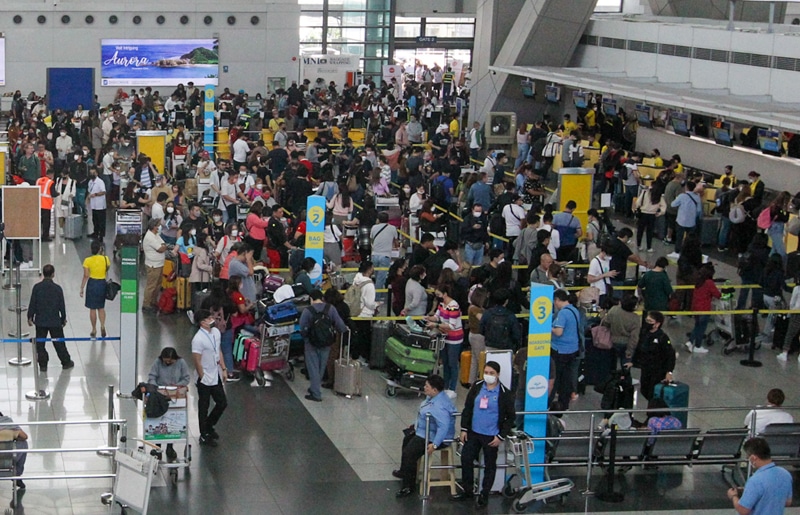Senate President Juan Miguel Zubiri on Wednesday said officials responsible for the New Year’s Day air traffic fiasco that caused more than 360 flights in and out of Manila to be canceled, diverted, or delayed, should be fired for embarrassing the entire country.
“It is unforgivable, what happened to us. Why? First, it was embarrassing. The whole world got the news that no planes could enter Philippine airspace… If it was incompetence, then people should be fired,” Zubiri said at a media forum.
Zubiri said he was vacationing in Japan when he heard the news of the incident, which affected about 65,000 passengers.
The Senate committee on public services is set to investigate the incident today, Thursday.
Zubiri said he wants to find out if the fiasco was caused by mere incompetence or sabotage, given that similar incidents “only happened three times in the world.”
“If there was sabotage, hacking, they should disclose that. If it was their fault, they should admit it,” he said.
The Civil Aviation Authority of the Philippines (CAAP) said the problem started when the air traffic management center, which controls inbound and outbound flights, suffered a power outage that led to the loss of communication, radio, radar and internet. A backup power system failed to kick in.
Transportation Secretary Jaime Bautista said a secondary problem was the power surge due to the power outage that affected the equipment.
President Ferdinand Marcos, Jr. last week apologized to the passengers affected by the air traffic mess.
But an opposition lawmaker in the House of Representatives said that wasn’t enough.
“Apology without compensation is insufficient,” House Deputy Minority Leader and Bagong Henerasyon Rep. Bernadette Herrera said as Congress began its inquiry into the incident on Tuesday.
Herrera said that while the President’s apology was “appreciated,” it would be more appropriate if the government considers compensating the affected air travelers.
“The government can devise a system to compensate the passengers for the inconvenience they suffered,” Herrera said.
She added: “There is actually no amount of financial compensation that can fully make up for passengers who missed moments with their families that they can never get back—New Year’s Day, birthdays, weddings, and other special events.”
Herrera said compensation is in order, considering that the shortcomings of the airport do not appear to be caused by any “force majeure” situations.
Herrera also urged the Department of Transportation (DOTr) and the CAAP to conduct a comprehensive preventive maintenance inspection of vital facilities and equipment at the Ninoy Aquino International Airport (NAIA) and other airports to ensure the New Year’s Day fiasco will not happen again.
Last week, Herrera filed a resolution calling for an inquiry, in aid of legislation, on the airport mess, saying the House “must get to the bottom of it so we can prevent a repeat of that awful day.”
In the Senate, Senator JV Ejercity said he opposed a plan to privatize the NAIA, saying public utility services were vital to national security.
“I think what happened during the fiasco should be an eye opener for us,” said Ejercito, vice chairman of the Senate public services committee.
Ejercito said he believes that utilities involving national security should be under government control.
He warned that NAIA, the country’s main international gateway, could suffer the same fate as
the National Grid Corporation of the Philippines (NGCP), a power transmission operator that was privatized in 2009.
Around 40 percent of the NGCP’s stakes are owned by the State Grid Corporation of China.
“We know for a fact that we have a dispute with China. But with what happened at the airport, with one instance, it can paralyze the whole airspace system. Air traffic froze for several hours. So, with one flick, we can be paralyzed without electricity,” he said.
Ejericto filed Senate Resolution No. 400, directing the Senate committee on public services to conduct an investigation into the New Year’s Day fiasco.
The said panel is set to hold its first hearing today, Jan. 12.





